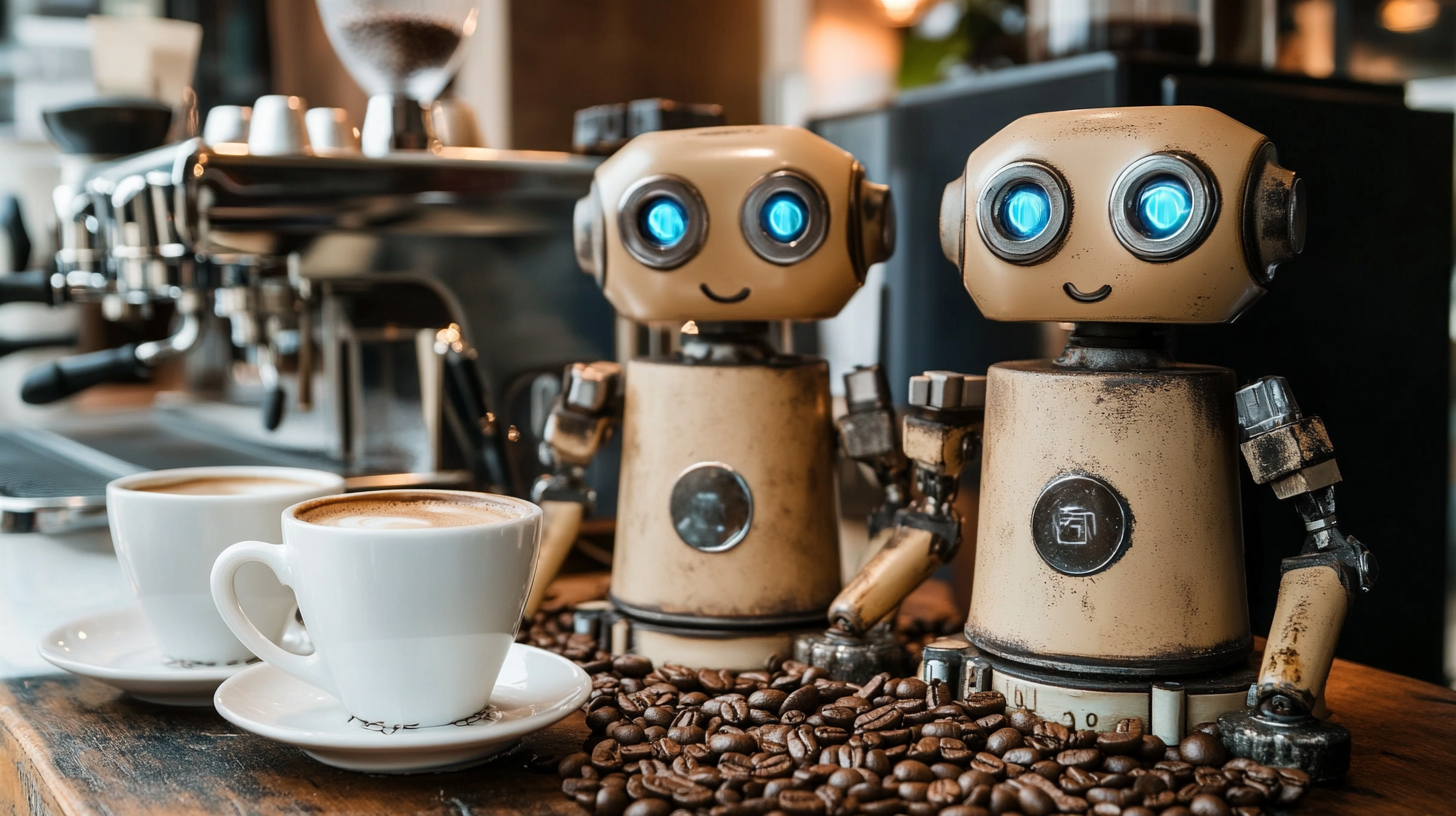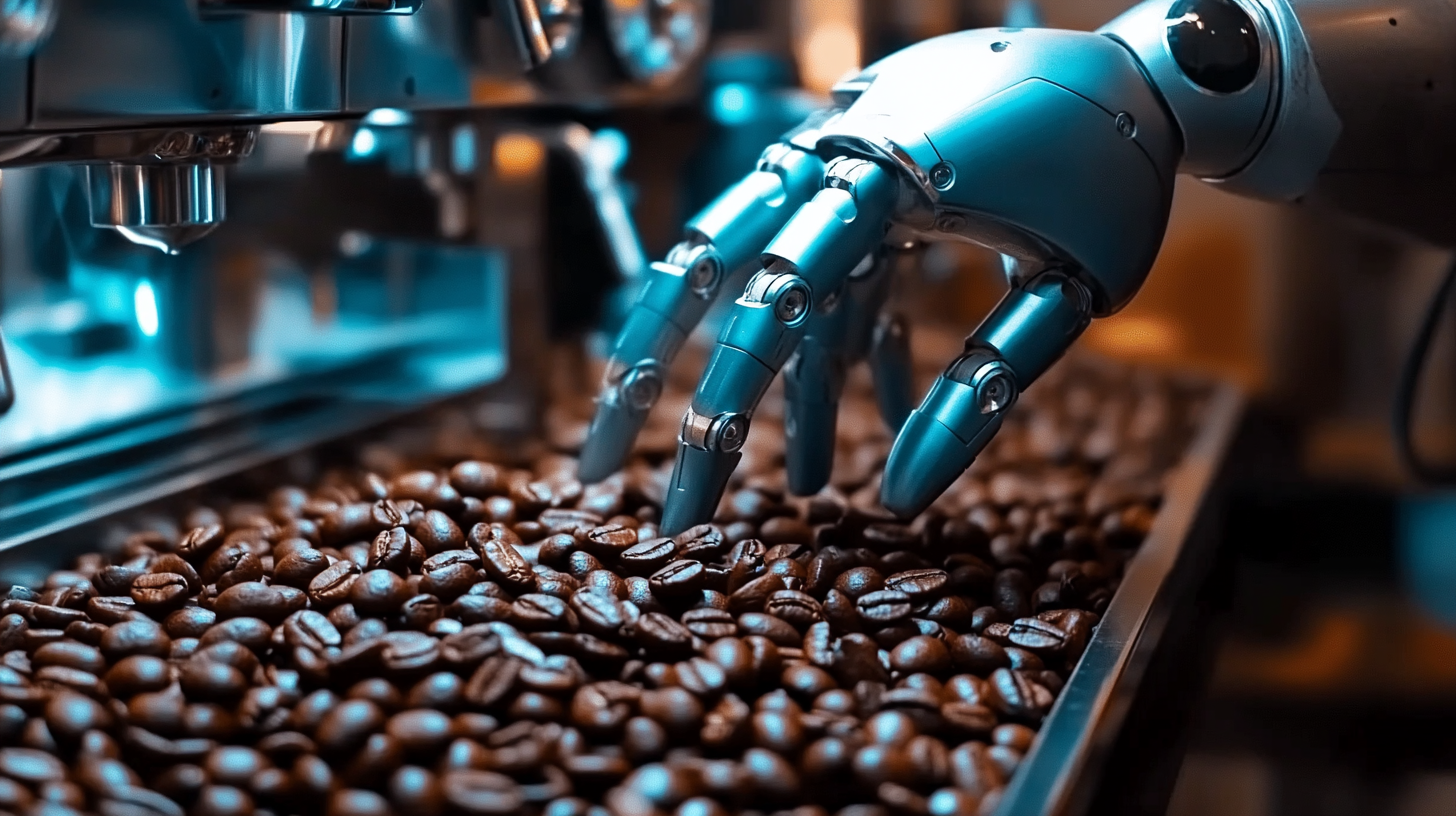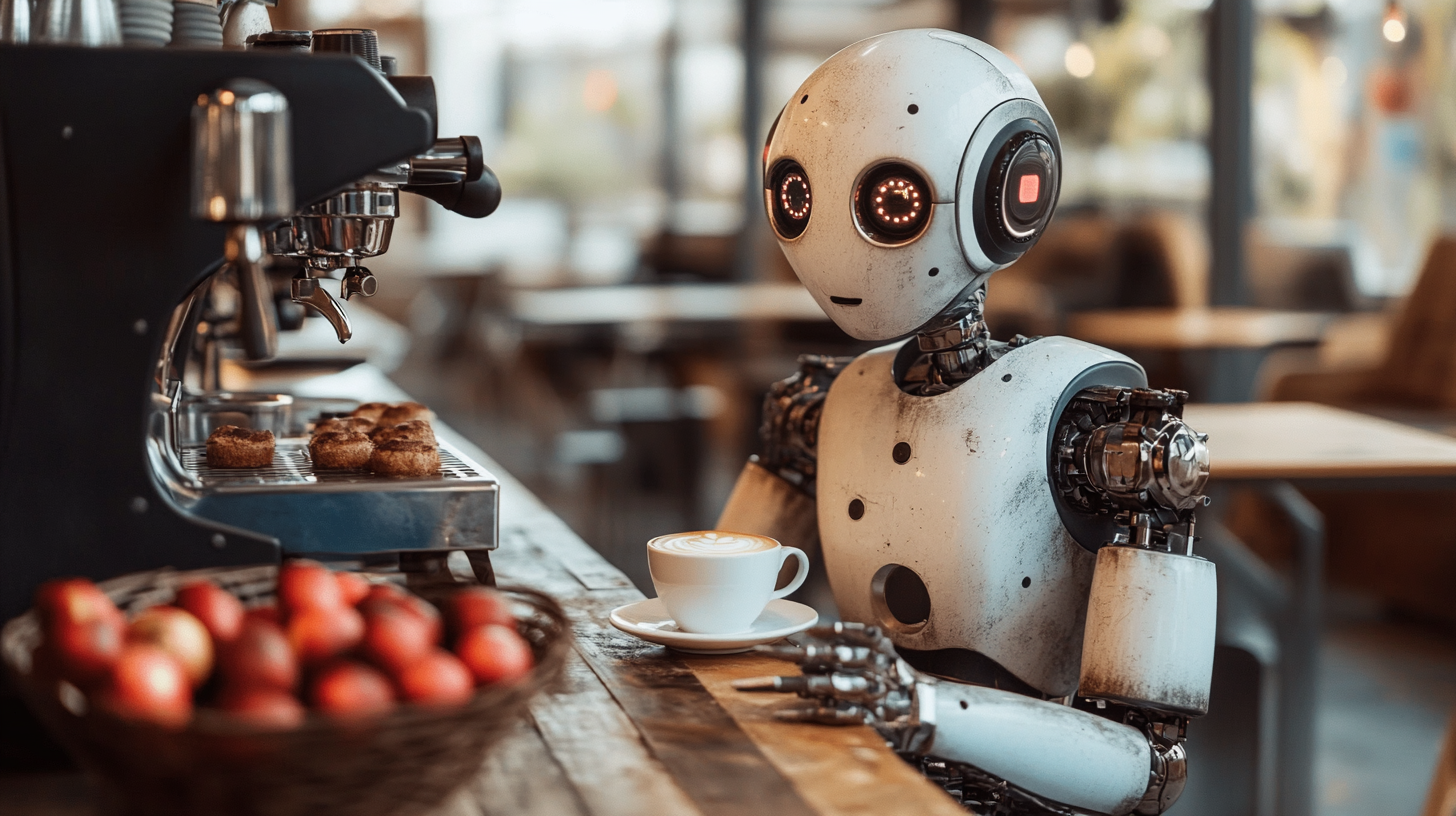Global Robotics Coffee Bar Growth Insights 2024 Top Import Export Certifications You Need to Know
In recent years, the landscape of the food and beverage industry has been revolutionized by the advent of technology, leading to innovative concepts like the Robotic Coffee Bar. This phenomenon not only redefines the coffee experience but also presents a unique blend of convenience, efficiency, and sophisticated automation. As we venture into 2024, the growth potential of Robotic Coffee Bars is becoming increasingly evident, driven by consumer demand for quick service and high-quality beverages. Understanding this burgeoning trend will provide insights into not just the technological advancements, but also the significant impact on global trade dynamics within the coffee sector.
Moreover, as the Robotic Coffee Bar market expands, it becomes essential to navigate the various import and export certifications that accompany this growth. These certifications not only ensure compliance with safety and quality standards but also facilitate smoother international transactions. This blog will delve into the critical insights surrounding Robotic Coffee Bar growth for 2024, highlighting the key certifications that businesses need to embrace in order to thrive in this evolving marketplace. Whether you are an entrepreneur, investor, or coffee enthusiast, understanding these elements will arm you with the knowledge necessary to engage meaningfully with this exciting sector.

Global Robotics Coffee Bar Market Overview: Trends and Projections for 2024
As the global robotics coffee bar market continues to evolve, several key trends and projections for 2024 have emerged. The increasing adoption of automation in the food and beverage industry is a significant driver of this growth. According to a recent report by Market Research Future, the global robotics market in food service is expected to reach approximately $3.5 billion by 2024, growing at a CAGR of 20% from 2020. This trend is primarily fueled by the demand for enhanced efficiency, consistency, and quality in beverage preparation. Furthermore, consumer preferences are shifting towards contactless service and innovative experiences. A survey conducted by the National Restaurant Association revealed that 67% of consumers are more likely to visit a restaurant offering robotic service. In response, coffee bars are increasingly integrating robotic systems that not only brew coffee but also interact with customers, shaping a unique experience that blends technology with tradition. The market is also witnessing a rise in investments directed toward developing advanced certification processes for robotic equipment. As per a report by Statista, over 60% of coffee shops are planning to invest in robotic technology by the end of 2024, indicating a strong focus on compliance with safety and operational standards. Essential certifications such as ISO 9001 for quality management systems and ISO 22000 for food safety management become crucial for businesses aiming to thrive in this competitive landscape. As we look ahead to 2024, the robotics coffee bar market is set to transform the way consumers engage with their favorite beverages, signifying a remarkable blend of technology, efficiency, and customer satisfaction.

Key Import Regulations Impacting Global Robotics Coffee Bar Trade
The global robotics coffee bar industry is poised for significant growth in 2024, driven by advancements in automation and changing consumer preferences. However, navigating the complex landscape of import regulations is crucial for businesses looking to engage in international trade. Understanding these regulations can help companies successfully enter new markets and optimize their supply chains.
One of the key import regulations impacting the robotics coffee bar trade is compliance with safety and quality standards. These standards vary by country and often include certifications that ensure products meet specific safety requirements. For instance, the International Organization for Standardization (ISO) certifications are essential for robots and equipment used in coffee preparation, ensuring that they operate safely and efficiently. Companies must stay informed about the latest certification requirements to avoid costly delays in shipping and distribution.
Another important aspect of import regulations is the need for proper labeling and documentation. Clear and accurate labeling not only facilitates smoother customs processes but also enhances consumer trust. Additionally, businesses must be aware of tariffs and duties that may apply to robotic equipment and coffee products. Understanding trade agreements between nations can also offer opportunities for reducing costs and improving profit margins, making it vital for companies to integrate these considerations into their overall export strategy.

Essential Export Certifications for Robotics Coffee Bar Businesses
In recent years, the robotics coffee bar sector has seen significant growth, driven by the demand for innovative coffee service solutions. As businesses in this niche expand globally, understanding essential export certifications becomes crucial for successful operations, particularly in markets rich in coffee culture. One noteworthy trend is the rise of climate-smart coffee production practices in the East African Community (EAC), highlighting how environmental sustainability can synchronize with export potential. With countries like Ethiopia achieving record coffee export revenues of $1.5 billion within just nine months, businesses must prioritize the right certifications to tap into lucrative international markets.
The European Union has emerged as a key destination for coffee exports, even overtaking the United States in some instances, such as with Costa Rican coffee—a trend that positions European standards and certifications at the forefront of import requirements. The rise of sustainability practices, like mulching and agroforestry, not only aligns with consumer preferences but also opens export opportunities, underscoring the importance of certifications in promoting ethically sourced products. Companies looking to penetrate these markets should focus on certifications that showcase their commitment to quality, sustainability, and transparency.
Furthermore, data analytics suggests that countries like Vietnam are experiencing soaring coffee export prices, with an increase of 74% in Q1 alone. Such market dynamics indicate that businesses must adapt to rapidly changing conditions by obtaining relevant export certifications, including those that address trade regulations and quality standards, to ensure competitiveness in the global arena. As the robotics coffee bar industry continues to evolve, staying informed about these certifications will be vital for long-term success and sustainable practices.

Innovative Technologies Driving Growth in the Robotics Coffee Bar Sector
The robotics coffee bar sector is witnessing an exhilarating transformation driven by innovative technologies that enhance both efficiency and customer experience. At the forefront of this evolution are advancements in artificial intelligence and machine learning, allowing coffee robotics to personalize beverages to individual tastes. AI algorithms analyze customer preferences in real-time, enabling machines to create tailor-made brews that cater to specific flavor profiles. This level of customization fosters customer loyalty and encourages repeat visits, propelling industry growth.
Another pivotal technological advancement is the integration of IoT (Internet of Things) in robotics coffee bars. Smart machines connected to the internet can monitor their operational status, track ingredient levels, and even predict maintenance needs. This proactive approach reduces downtime and ensures that coffee enthusiasts are not left waiting for their favorite drinks. Moreover, IoT enables data collection, allowing businesses to gain insights into customer behavior and optimize their offerings accordingly.
Furthermore, advancements in robotic automation streamline the entire coffee-making process. With precision engineering, robotic arms can replicate the most complex brewing techniques, delivering a consistent product every time. The decrease in labor costs and the reduction of human error not only enhance operational efficiency but also contribute to a unique customer experience, as patrons can enjoy the spectacle of their drinks being crafted by sophisticated machinery. As these innovative technologies continue to emerge, the robotics coffee bar sector is poised for unprecedented growth, capturing the interest of consumers and investors alike.
Challenges and Opportunities in the Global Robotics Coffee Bar Supply Chain
As the global enthusiasm for robotics coffee bars continues to surge, the intricate challenges and promising opportunities within the supply chain are becoming increasingly evident. The introduction of robotics into the coffee industry, exemplified by the innovative "robot barista" showcased at the recent Canton Fair, highlights how artificial intelligence is transforming traditional coffee experiences. With robots providing coffee for as little as 10 yuan, the intersection of technology and culinary arts is not only making gourmet coffee more accessible but also setting the stage for a larger market expansion.
Chinese companies are leading the charge, rapidly advancing their technologies to meet international demands. For instance, the recent partnership between J&T Express and the Baoshan Coffee Industry Association signals a strategic move to enhance supply chain efficiency and foster local coffee production. This collaboration aims to streamline logistics and ensure that fresh products are delivered to consumers swiftly, illustrating how regional partnerships are critical in overcoming potential supply chain hurdles.
However, as these advancements unfold, companies must navigate various obstacles. Supply chain vulnerabilities, fluctuating market trends, and the need for robust import-export certifications are paramount. Businesses looking to thrive in the global robotics coffee bar landscape must prioritize compliance with international standards, ensuring not only the quality and safety of their products but also the sustainability of their operations. As the industry evolves, those who can adapt to the dynamic environment will be best poised to capitalize on the growing interest in robotic coffee solutions worldwide.
